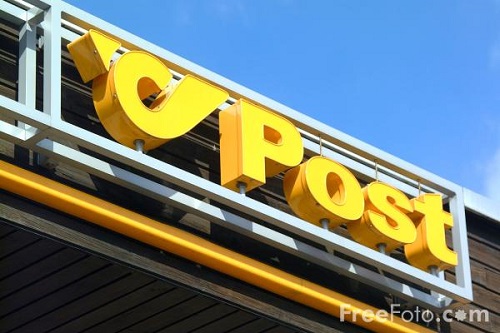
The South African Post Office posts a 7pct rise in revenue and a 12pct growth in profit before tax
Presenting the results today, the South African Post Office (Sapo) posted a 12pct rise in profit before tax of R565m (2007: R507m) for the 2008 financial year on the back of a 7pct rise in revenue from R5.2bn in 2007 to R5.6bn in the year under review.
She said that the group’s shareholder had agreed to continue providing a subsidy to the Sapo of R372m for the coming year. This will be increased to R383m in 2010. This subsidy is primarily used to assist with the necessary operational and capital expenditure required to service areas that are not commercially viable in South Africa, yet do require services as mandated by the shareholder in terms of its licence and agreed upon by Sapo as part of its Universal Service Obligations.
The past year has seen many operational highlights, top of the agenda being the new business model that was defined and approved by the board of the Sapo, which in itself made major strides towards further compliance with codes of good corporate governance and the King 2 code, by establishing a Group Chairperson’s Committee, equivalent to an Investment Committee in a Public Company. The new operational design sees the group structured into 5 divisions:
• Mail
• Logistics
• Financial Services
• ICT and
• Property. Presenting the results today, the South African Post Office (Sapo) posted a 12pct rise in profit before tax of R565m (2007: R507m) for the 2008 financial year on the back of a 7pct rise in revenue from R5.2bn in 2007 to R5.6bn in the year under review.
Of particular note was the group’s ability to manage its expenses, which grew at an inflation beating 7pct. This has resulted in the South African Post Office achieving a profit margin of just over 10pct. Total assets grew by 10pct from R7bn to R7.7bn while cash and investments on the balance sheet showed an increase of 17.4pct from R4.6bn to R5.4bn. Ms. Lefoka said this sound financial platform was a key driver in the Post Office’s mandate and mission to efficiently connect with the world by distributing information, goods and financial and government services.
She said that the group’s shareholder had agreed to continue providing a subsidy to the Sapo of R372m for the coming year. This will be increased to R383m in 2010. This subsidy is primarily used to assist with the necessary operational and capital expenditure required to service areas that are not commercially viable in South Africa, yet do require services as mandated by the shareholder in terms of its licence and agreed upon by Sapo as part of its Universal Service Obligations.
The past year has seen many operational highlights, top of the agenda being the new business model that was defined and approved by the board of the Sapo, which in itself made major strides towards further compliance with codes of good corporate governance and the King 2 code, by establishing a Group Chairperson’s Committee, equivalent to an Investment Committee in a Public Company. The new operational design sees the group structured into 5 divisions:
• Mail
• Logistics
• Financial Services
• ICT and
• Property.
All of which are supported by a centralised corporate services division. With a serviceable landscape of 1.2 million square kilometres – a size greater than Austria, Belgium, France, Germany, Luxembourg, the Netherlands and Switzerland combined – Sapo is one of the broadest operators in the South African business landscape, responsible for over 2,500 outlets, 5,500 service points and employing over 16,000 people, who are responsible for delivering over 6 million mail items each day, with a service delivery of approximately 93pct. Amongst the highlights Ms. Lefoka referred to the roll-out of nearly 5.7m new addresses in the past 3 years, more than two-thirds of these in rural areas. This means that an additional 1/8 of the South African population can now receive mail and are able to become FICA compliant, a key pre-requisite to individuals being able to achieve financial independence. With this in mind, Ms. Lefoka pointed to the strong performance of Postbank, the financial services division of the group, and which accounts for some 8pct of group revenues.
Looking back over the past 6 years Postbank has seen depositors’ funds more than double from R1.2bn to nearly R2.9bn, also showing a healthy 11pct increase in depositors’ funds from the R2.6bn in 2006/7 to R2.9bn in 2007/8. She said it was the SA Post Office’s vision to ensure that Postbank would become a separate company within 3 years, while further financial services offerings were being lined up to enhance the offering to the Postbank’s 4.6 million clients.
Postbank is one of the most widely used service points for Mzansi accounts, with some 2 million accounts – 40pct market share – opened since the Mzansi initiative was launched. However, Ms. Lefoka did not shy away from addressing challenges the group still has to tackle, as it continues in its strive for service excellence.
She acknowledged that there was still some scepticism with regards to Sapo’s image driven largely by mail security as highlighted by the Amazon.com case. Ms. Lefoka affirmed that a top priority for the Post Office going forward was to address the issue of mail crime. “I am committed to reducing mail crime,” she says. “One letter undelivered is one letter too many. We will make strides by upping our investment in security infrastructure – we have set aside R50 million towards this in the next financial year – and we are actively engaging our workforce to work with us to stamp out mail crime.”
She was confident that the stable financial platform and the heavy capital expenditure in processes, systems and surveillance would lead to a further improvement in mail delivery, thus ensuring the regaining of the trust of the public. “We are achieving a 93pct delivery rate on mail items. Our goal over the next 12 months is to improve this to 95pct. We are also in the process of introducing a new postal coding system that will improve the accuracy of delivery. Within three years of its roll out, we anticipate that our mail delivery success rate will grow to 98pct.”
1 USD = 7.71746 ZAR












